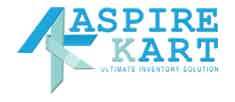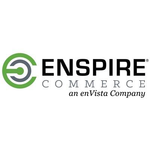Description

Aspirekart

ShipMonk
Comprehensive Overview: Aspirekart vs ShipMonk
As of my knowledge cutoff in October 2023, I don't have specific information on "Aspirekart." It is either not a majorly recognized company or platform up until that time or it may be known under different circumstances or branding. If Aspirekart is a newly developed platform or a niche service, its information might not be widely documented in public sources available to me.
ShipMonk, on the other hand, is a well-known tech-enabled third-party logistics (3PL) company that serves as an eCommerce fulfillment partner. Here’s a comprehensive overview of ShipMonk along with inferred insights considering it and an unknown entity like Aspirekart:
ShipMonk
a) Primary Functions and Target Markets:
- Primary Functions:
- Order Fulfillment: ShipMonk manages the entire order fulfillment process including inventory management, order picking and packing, and shipping.
- Inventory Management: Provides real-time inventory tracking and management through a digital dashboard.
- Shipping Solutions: Offers shipping options with major carriers, helping businesses optimize costs and delivery times.
- Returns Management: Streamlines the returns process to enhance the customer experience.
- Target Markets:
- eCommerce businesses of various sizes looking for reliable logistics and fulfillment solutions.
- Subscription Box Companies, D2C brands who need scalable fulfillment services.
- Small to Medium Enterprises (SMEs) aiming to outsource their logistics needs to focus on growth and other core business areas.
b) Market Share and User Base:
- ShipMonk is a significant player in the 3PL and fulfillment industry, competing with other major providers like Amazon FBA, Red Stag Fulfillment, and Fulfillment by ShipBob.
- Although specific market share percentages might not be publicly available, ShipMonk has established itself firmly due to its tech-centric solutions and customer-centric service.
c) Key Differentiating Factors:
- Tech-Driven Approach: ShipMonk leverages technology to provide seamless integration with eCommerce platforms, offering a centralized dashboard for comprehensive logistics management.
- Scalability: It’s renowned for scalable solutions suitable for growing businesses or those experiencing seasonal demand changes.
- Customizable Services: Offers tailored fulfillment services that can be customized based on business needs.
- Customer Service: ShipMonk emphasizes a strong customer service model, providing 24/7 support.
Comparative Analysis with Aspirekart:
a) Primary Functions and Target Markets:
Without specific details on Aspirekart, it’s challenging to compare directly, but should Aspirekart operate in the same eCommerce or logistics space, the comparative functions might relate to fulfillment or digital platform services. The target market would depend on the specific services offered—whether they are for niche sectors or wider commerce functionalities.
b) Market Share and User Base:
As ShipMonk has an established presence, Aspirekart would need to have a niche or innovative approach to carve out a market share if it operates within the same industry. The user base and acceptance significantly depend on the service quality, competitive pricing, and technological novelty that Aspirekart brings.
c) Key Differentiating Factors:
- Without explicit information on Aspirekart's services or operational features, any differentiation could potentially lie in unique selling propositions such as cost-effectiveness, ease of use, better integration capabilities with specific eCommerce platforms, or specialized solutions for certain industries.
In conclusion, for a more accurate and tailored comparison, specific and updated information about Aspirekart would be essential. ShipMonk serves as a strong example in the logistics and fulfillment industry due to its tech leverage and comprehensive service offerings.
Contact Info

Year founded :
Not Available
Not Available
Not Available
Not Available
Not Available

Year founded :
2014
+1 855-222-4601
Not Available
United States
http://www.linkedin.com/company/shipmonk
Feature Similarity Breakdown: Aspirekart, ShipMonk
As of my last update, Aspirekart and ShipMonk are both companies providing logistics and fulfillment solutions, though they may have different target markets and specific functionalities. Here’s a breakdown of their features based on typical offerings and what may set them apart:
a) Core Features in Common
Both Aspirekart and ShipMonk are likely to offer the following core features:
- Inventory Management: Both platforms provide tools to manage and track inventory across multiple channels.
- Order Fulfillment: They automate the order fulfillment process, from picking and packing to shipping.
- Multi-channel Integration: Integration with various e-commerce platforms such as Shopify, Amazon, eBay, etc.
- Shipping Solutions: Coordination with multiple shipping carriers to offer a variety of shipping options and real-time tracking.
- Analytics and Reporting: Provide data analysis tools to help businesses understand their logistics and inventory trends.
- Returns Management: Handling of customer returns and restocking.
- Customer Support: Assistance through various communication channels for problem resolution.
b) User Interface Comparison
Though the specific user interfaces can be highly subjective and may depend on design updates, some general points of comparison might include:
- Ease of Use: Both platforms likely strive for simplicity and ease of use, but they may have different emphases. For instance, ShipMonk might focus more on comprehensive dashboards with extensive data insights, while Aspirekart might prioritize straightforward navigation and quick actions, depending on their market focus.
- Customization Options: The ability to customize dashboards and reports could differ, with one possibly offering more flexibility than the other.
- Visual Design: Aesthetic differences can influence user satisfaction. One platform might use a more modern, sleek design, while the other could have a more traditional or utilitarian interface.
- Mobile Accessibility: The responsiveness and design of mobile interfaces might vary, impacting on-the-go management capabilities.
c) Unique Features
Identifying unique features without access to specific recent updates from these companies can be challenging, but generally speaking:
- Aspirekart: If it differentiates itself by focusing on a niche aspect like eco-friendly fulfillment or specialized industry solutions (e.g., subscription box services), it might offer features tailored specifically for that market.
- ShipMonk: Known for its technology integrations, ShipMonk may offer advanced automation features, AI-driven forecasts, or unique tools for scaling fulfillment operations—particularly appealing to fast-growing e-commerce businesses.
Both platforms are constantly evolving, and specific features can change quickly based on their strategic goals, customer demands, and technological advancements. For the most accurate comparison, examining the latest feature lists, user reviews, and leveraging trial access to each platform would be useful.
Features

Integration and Compatibility
User Management
Dashboard and Analytics
Support and Resources

Order Management
Inventory Management
Customer Support
Shipping Solutions
Best Fit Use Cases: Aspirekart, ShipMonk
Aspirekart
a) Best Fit Use Cases for Aspirekart
-
E-commerce Startups and SMBs: Aspirekart is an e-commerce platform that is particularly well-suited for startups and small to medium-sized businesses (SMBs) looking to establish an online presence efficiently. It provides an easy-to-use interface and cost-effective solutions for these businesses to set up and manage online stores without needing extensive technical expertise.
-
Niche Retailers and Specialty Stores: Aspirekart can be a great choice for businesses focusing on niche products or specific markets. Its customizable features allow retailers to tailor their online storefronts to suit unique customer bases and product offerings.
-
Budget-Conscious Businesses: Companies operating on tight budgets will find Aspirekart appealing due to its competitive pricing and value-driven features. It offers essential e-commerce functionalities without additional costs that might be more suitable for larger, resource-rich businesses.
-
Quick Launch Projects: For businesses or projects needing a quick market entry, Aspirekart provides a streamlined setup process, enabling rapid deployment of online storefronts. This is ideal for companies wanting to capitalize on current market trends or seasonal products quickly.
d) Catering to Industry Verticals or Company Sizes
Aspirekart primarily caters to small and medium-sized businesses across various industry verticals, such as fashion, electronics, health and beauty, and more. Its scalability allows it to support growing businesses as they expand their product offerings and customer base.
ShipMonk
b) Best Fit Use Cases for ShipMonk
-
Growing E-commerce Businesses: ShipMonk is an excellent choice for e-commerce companies experiencing growth and requiring robust fulfillment solutions to handle increasing order volumes. Its scalable infrastructure supports businesses that need to optimize their supply chain and logistics operations.
-
Multi-channel Retailers: Businesses selling on multiple platforms, such as Amazon, eBay, and their own websites, can benefit from ShipMonk’s integrated fulfillment solutions that streamline inventory management across various sales channels.
-
Subscription Box Services: Companies offering subscription boxes can utilize ShipMonk's specialized fulfillment services designed to manage recurring shipments, ensuring timely and accurate delivery of subscription products.
-
International Expansion: Businesses looking to expand into international markets will find ShipMonk’s global logistics solutions advantageous. Its capabilities include international shipping and customs handling, making cross-border sales more manageable.
d) Catering to Industry Verticals or Company Sizes
ShipMonk serves a wide range of businesses, from small e-commerce startups to large enterprises, across diverse industry verticals such as consumer goods, lifestyle products, health and fitness, and more. Its ability to scale fulfillment operations makes it appealing to both smaller companies seeking growth and larger companies needing efficient logistics solutions to maintain high order volumes.
Summary
In summary, Aspirekart is optimal for smaller or niche e-commerce businesses looking for a budget-friendly and easy-to-use platform to launch and grow their online presence. ShipMonk, on the other hand, is favored by e-commerce businesses that require advanced fulfillment and logistics solutions to scale efficiently, offering robust services for companies operating across multiple sales channels and international markets.
Pricing

Pricing Not Available

Pricing Not Available
Metrics History
Metrics History
Comparing teamSize across companies
Conclusion & Final Verdict: Aspirekart vs ShipMonk
Conclusion and Final Verdict for Aspirekart vs. ShipMonk
When deciding between Aspirekart and ShipMonk, it's essential to assess their value propositions, strengths, and weaknesses in relation to your specific needs.
a) Best Overall Value
Aspirekart is likely to offer the best overall value for small to medium-sized businesses or startups focusing on streamlined e-commerce functionalities, affordability, and ease of use. It generally serves those who are beginning their e-commerce journey or are looking for a cost-effective solution to manage orders and inventory.
ShipMonk, on the other hand, may provide better value for larger enterprises or rapidly scaling businesses due to its robust logistics and fulfillment services. Companies that require extensive warehousing, inventory management, and the ability to handle large volumes efficiently might find ShipMonk's capabilities most beneficial, even if it comes at a higher cost.
b) Pros and Cons
Aspirekart
-
Pros:
- Cost-effective pricing model, which is appealing to startups and smaller businesses.
- User-friendly interface with intuitive features.
- Strong community and customer support system.
- Versatile e-commerce functionalities that integrate well with various platforms.
-
Cons:
- May lack scalability for rapidly growing businesses.
- Limited advanced features compared to more extensive systems.
- Potential limitations in logistics and fulfillment compared to specialized providers like ShipMonk.
ShipMonk
-
Pros:
- Comprehensive logistics and fulfillment services ideal for handling large volumes.
- Advanced inventory management and warehousing capabilities.
- Efficient shipping solutions with discounted rates through partnerships.
- Scalability designed for fast-growing businesses.
-
Cons:
- Higher cost, potentially less suitable for small businesses or startups with tight budgets.
- Complex setup that may require a learning curve.
- Some users might find it less focused on the seamless integration of e-commerce sales platforms initially.
c) Recommendations
-
For Small to Medium Businesses: Aspirekart might be the preferable option if your primary focus is to start online sales efficiently with a limited budget. The user-friendly interface, affordability, and basic functionalities provide a great starting point.
-
For Scaling Enterprises: If you prioritize logistics and fulfillment capabilities with the need to manage substantial inventories across different locations, ShipMonk could serve as a more fitting choice due to its comprehensive services and scalability.
-
Test Both Services: Consider conducting a trial or pilot project with both parties if feasible. This could offer valuable insights into which platform better aligns with your workflow, budget, and long-term business strategies.
Ultimately, aligning each platform's strengths and features with your business objectives and growth plans will guide you toward the most appropriate decision.
Add to compare
Add similar companies




